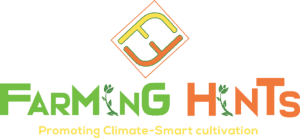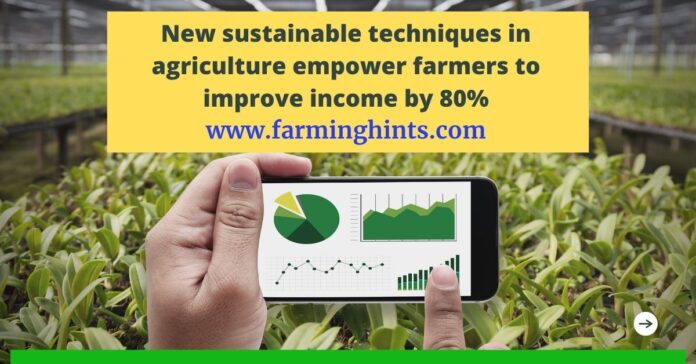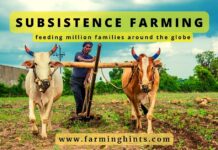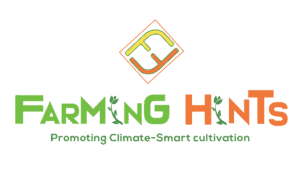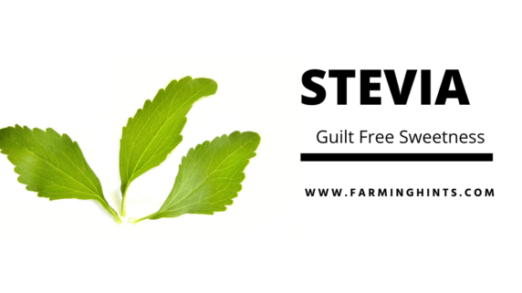Zero Waste Farming or zero waste agriculture is actually a type of sustainable agriculture gaining popularity among farmers nowadays. The process of this farming concept revolves around using natural resources to increase food production, crop growth, and rearing livestock.
To understand what is zero waste farming or zero waste agriculture, there is a need to know what agriculture waste is so that your farm can go on zero waste.
Agriculture waste is all the unwanted material produced as a result of the growing of the crops or rearing of animals. It includes fruits, vegetables, leaves, weeds, animals excrete, UNWANTED PLANTS etc.
What is Zero Waste Farming?
Zero Waste Farming or zero waste agriculture is a method in which natural resources like Plants, Animals, Algae, Bacteria, and Fungi are used to their maximum resulting in organic food production.
The waste material in this process is also used for fruitful purposes. It is one of the modern sustainable agricultural practices. Natural food processes and natural supply chains are used in zero-waste agriculture. Zero Waste Farming is gaining significance day by day.
Importance of Zero Waste Farming
Zero Waste Farming is an organic farming method, so pesticides and other dangerous chemicals have no part in producing this type of food. It is a pure and clean method of producing edibles. Some of the essential factors to which Zero Waste Farming contributes are;
-
-
-
Reduced Climate Impact on earth.
-
Conserved Resources for the future.
-
Minimized Pollution (Air + Land + Water).
-
Promotes Social Equity.
-
Supply More Food for Living organisms.
-
Balance Economy Conditions.
-
Control Soil Erosion.
-
Minimize Energy Consumption.
-
Provides Healthy Nutrients.
-
-
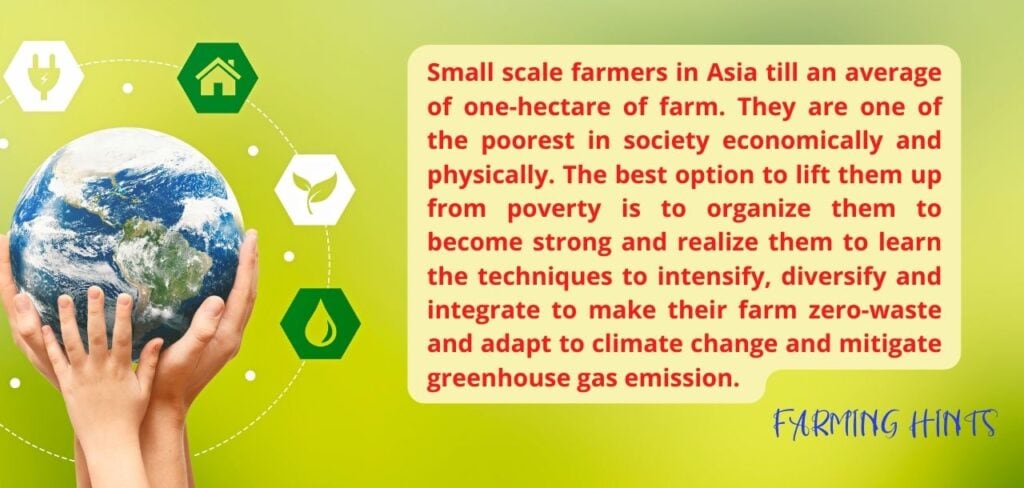
Is there still any waste in Sustainable Farming?
Typically, it is assumed that this method is a waste-free farming method. But, there are still some waste residues available in the process.
The waste material is available, but it is usable. There is no food loss that occurs in Sustainable farming. You can recycle and reuse anything during the process, and the availability of waste material is almost negligible.
Hence, it is approximated as there is no waste in Zero Waste Agriculture, but in reality, a little insignificant amount of waste is present.
Key Rules of Zero Waste Farming
To reduce the amount of agricultural pollution created and to make the most use of naturally occurring resources, zero waste agriculture applies organic farming techniques on a bigger scale. As a result, farming becomes a “closed loop.” With this agricultural technique, there is no chance of contamination or harm from waste.
Here are some fundamental rules of this farming method;
-
-
-
Reducing overall waste
-
Make Reusable Waste
-
Avoid pest outbreaks
-
Avoid extra fertilization
-
Minimize water waste
-
Create a rich compost
-
Precise Use of Resources
-
-
The standard issue which has emerged quickly these days is that topsoil has been heavily damaged by ground and water pollution. Topsoil is unable to produce healthy plants even though some of the soil is contaminated to the point where nothing can grow.
Hence, zero waste farming is crucial to restoring the topsoil to its actual condition. The most effective and dependable methods of minimizing agricultural waste must be realized as soon as possible. Nevertheless, there is a ton to discover about zero waste farming. And how to effectively manage our trash. Let’s check some types of agricultural waste.
Types of Agriculture Waste
Agriculture waste is classified in many categories by agriculturists. But, when confined to fewer categories, we get only four categories.
1. Pesticides and Other Chemicals:
Pesticides are common chemicals applied to crops to reduce harmful insects. With the advancement in agricultural science and the invention of many substances, the use of pesticides has increased at a higher rate. It is one of the significant waste materials in modern-day agriculture. It has damaged the upper soil and water resources.
2. Manure:
The excretion of animals is called manure. It is an agricultural waste that can be used in crop production as a fertilizer source. It also has some environmental hazards.
3. Green Waste:
Green waste comprises unwanted leaves, branches, and other green waste materials. It is often removed to get better production from the crops. But, it has a dangerous factor that needs some attention. It can create environmental problems.
4. Gas Emissions:
The agricultural industries and machinery produce smoke which includes many fatal chemicals. Carbon gas emissions produce lung and respiratory diseases. Livestock waste produces greenhouse gases that harm our surrounding air. Animal feces also produce methane. Gases constitute a significant hurdle in zero waste farming.
Why is Agriculture Waste Pollution a Huge Problem?
Agriculture waste has always been a problem for humans. The crop and animal residues are increasing daily and taking more free space. They must be dealt with seriously; otherwise, we may not stay alive on Earth. Unwanted Products from large and small farms, industries, poultry farms, and dairy farms are categorized as agricultural waste. Here are some of the common problems occurred due to agricultural waste:
-
-
-
Air Pollution
-
Water Pollution
-
Soil Contamination
-
Ozone Layer Depletion
-
Green House Effect
-
Increased Overall Atmosphere Temperature
-
Minimized Life Sustainability
-
Climate Instability
-
Health Issues of Human and Livestock
-
-
How to Reduce Agriculture Waste?
The reduction of Agriculture waste is not impossible. Some common measurements are necessary to take in order to control agricultural waste. Less Agricultural waste is the theme of Zero Waste Farming.
1. Composting:
Composting is the decomposition of agricultural waste in the presence of air for soil richness. It supports plant growth and is beneficial for the soil. Farmers can use this as a fantastic environmentally friendly choice. There are many materials in the Agriculture products that can be composted. It includes:
-
-
-
Plants
-
Leaves and branches
-
Grass or Hay
-
Animal Waste
-
Bushes and Weed
-
-
2. Mulching:
Mulching is another process that can be used to remove some agricultural waste. Mulching is a process in which plant residues cover the farm soil and, in response, provides rich nutrients and reduce soil erosion. Mulching is also essential to control water wastage in agricultural processes.
3. Purchase Control:
One mistake most farmers commonly make is purchasing many unnecessary items, and that too in bulk quantity. Particularly if you own a farm and are unsure of the precise amount of certain materials you may want, instead of making larger upfront purchases, it is preferable to visit the store regularly. It increases the overall agricultural waste production. Sometimes farmers buy more fertilizer than their use which causes problems. It is better to control your purchases to reduce agricultural waste. The best method to follow is that farmers must buy an item on a seasonal basis.
4. Recycling:
Recycling is one of the best methods to reduce agricultural waste and is widely adopted in zero waste farming. There are many things that are recyclable in agricultural waste. Fertilizer Bags, Spray Bottles, Plastic bags, Tires, Batteries, Containers, Drums, Metal and Plastic Items, and Rubber Items are some of the everyday items used in easily recyclable agriculture.
5. Western Package:
Western Packages are used to store and transfer stuff. Western Packages are also usable in reducing agricultural waste. It is also beneficial in storing different items that otherwise make agricultural waste.
Best Sustainable Agriculture Waste Management Method
Although every method has its benefits and drawbacks, recycling is currently the best sustainable agriculture waste management method. Recycling not only reduces agricultural waste but makes it possible to use recycled material for making new items.
How Can Zero Waste Farming Help?
Zero Waste Farming helps in every aspect. There is an environmental factor, Atmospheric factor, aquatic life, you just name it. Zero Waste Farming benefits all of them.
-
-
-
It contributes to environmental conservation, which is necessary to fulfill the basic needs of people.
-
The reduction of chemical use is beneficial for human beings as well as every creature on Earth.
-
It provides more food for living things.
-
It saves energy for its better service in the future.
-
An essential factor of zero waste farming is that it is health friendly.
-
Farmers avoid pesticides, insecticides, and fungicides and provide with pure organic food supply.
-
It brings less exposure to hazardous chemicals, thus saving the lives of people from its effects.
-
Less Air pollution and fewer respiration problems are only possible through this agricultural practice.
-
Less soil erosion means more crop production, and it is all possible through no waste practices in agriculture.
-
Reduction of agriculture waste needs money. So, zero waste agriculture will lessen the expenditures on these practices.
-
It helps in rearing livestock for commercial use.
-
It brings economic benefits to farmers.
-
-
Drawbacks of Zero Waste Farming
If Zero Waste Farming helps people, it may have some drawbacks; some of them are below:
-
-
-
Plants take more time to grow.
-
Less Food Production.
-
Land fertility may get affected due to the use of no fertilizers.
-
An increase in weed growth may take place due to the use of no pesticides.
-
-
Conclusion
The zero Waste Farming concept should be widely used as it has more benefits than drawbacks. Investing your time and money is vital to making this concept successful. It provides better crop production and more food. It is beneficial for our environment and our natural resources. If there is any agricultural waste present, it should be disposed of properly, and adopt zero waste agriculture after doing so.
